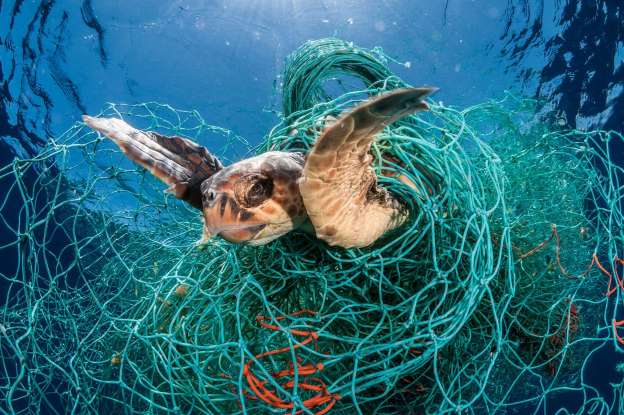Leading seafood companies need to do more to stop lost plastic fishing nets killing huge numbers of fish and marine animals each year. A report from World Animal Protection said an estimated 5% to 30% of the decline in some fish stocks can be attributed to abandoned, lost or discarded fishing gear, which can take up to 600 years to decompose.
The world’s biggest seafood firms are all contributing to the deaths of more than 100,000 whales, dolphins, seals, turtles and seabirds that are killed in agony every year by discarded fishing equipment. Many of the creatures are drowned, strangled or mutilated by plastic gear lost or abandoned at sea, while others suffer “a prolonged and painful death, usually suffocating or starving” either because they cannot fish or their stomachs are full of plastic.
Around 70% by weight of larger sized plastic waste in the oceans is fishing related, World Animal Protection said. It’s heartbreaking to know that animals caught in this incredibly durable gear can suffer from debilitating wounds or suffocate or starve to death over a number of months.
Microplastics – minuscule pieces – were found in the digestive tracts of 80 per cent of seals tested off the coast of Ireland, while other research cited found that plastic accounted for 69 per cent of the debris ingested by whales. Other studies said 98 per cent of whale entanglements involved ghost gear, while 82 per cent of North Atlantic right whales have become entangled at least once.

Realizing the intensity of this issue, many companies have come up and joined the Global Ghost Gear Initiative, an alliance founded by World Animal Protection in 2015, to help cut the amount of fishing gear being lost in the oceans.


